Chimpanzees and the Secret Life of Fermented Fruit
In the heart of Guinea-Bissau’s Cantanhez National Park, amid the twisted trunks of Treculia africana trees, a quiet experiment has been playing out. It involves no lab coats, no electrodes—just fruit, time, and a species known for its social intelligence.
Using motion-activated cameras, researchers recently documented1 a small but potentially significant behavior: wild chimpanzees not only consuming fermented fruit, but sharing it with others. In 10 filmed encounters, adult and juvenile Pan troglodytes verus were seen splitting overripe breadfruit—sometimes still warm from the forest floor—with companions from across age and sex classes.
Why does this matter?
The fruit contained alcohol.
Booze in the Bush
The fermented breadfruit, Treculia africana, can reach up to 30 kilograms and is rich in starch. As it softens in the heat and humidity, natural yeasts begin converting sugars into ethanol. Researchers measured the alcohol content using portable breathalyzers and found concentrations as high as 0.61% ABV—comparable to a very weak beer.
While this isn't enough to cause intoxication, it raises an evolutionary question: why do chimps share these specific fruits, especially when unfermented alternatives are readily available?
“Late ripe fruits had significantly higher ethanol levels compared to early ripe fruits,” the team noted. “And in multiple cases, these more fermented fruits were chosen and shared even when fresher ones were nearby.”
The behavior was neither aggressive nor opportunistic. In nine out of ten instances, it was classified as “passive sharing”—the possessor tolerated others feeding, without protest or resistance. In one instance, a juvenile took fruit directly from an adult’s mouth. There was no food guarding, no squabbling—just calm consumption.
From Fruit to Feast?
For humans, alcohol has deep roots in ritual, celebration, and social bonding. Shared drinking is among the oldest forms of collective activity—from Paleolithic fermented honey to Neolithic barley brews. Could similar impulses be traced in our primate relatives?
The idea isn’t entirely speculative. Molecular studies have found that the common ancestor of African apes developed an adaptation that supercharged ethanol metabolism around 10 million years ago. That genetic quirk likely allowed early hominins to extract more calories from overripe fruit—and to tolerate its intoxicating byproducts.
“The repeated ingestion and sharing of fermented fruits suggests that ethanolic food consumption could have deep evolutionary roots,” the authors write. “Its benefits—nutritional, chemical, and social—may help explain why such behavior persists.”
In humans, alcohol triggers the release of endorphins and dopamine, lowering stress and increasing feelings of trust and camaraderie. Some researchers argue that these neurochemical effects helped reinforce alliances among early humans. Could something similar be happening in chimpanzees?
Sharing, But Not Under Pressure
Chimpanzees don’t typically hand out food to others. Sharing tends to occur in highly specific contexts: grooming partners, mothers and offspring, or in exchange for mating. The fruits seen in this study, however, were shared across kin and non-kin, with no observable coercion or expectation of return.
This is not typical behavior. It suggests something about fermented fruit made it more “shareable.” Was it the rarity? The flavor? The physiological effects?
“In seven of the ten events, fruits were shared even when other non-monopolized fruits were present,” the study notes. “Possessors showed no apprehension when sharing took place.”
Ripe fermented fruits are mechanically easier to eat, require less energy to process, and may offer enhanced nutrition through microbial pre-digestion. They may also have symbolic or social value—though such claims require caution when interpreting nonhuman behavior.
The Origins of Feasting?
Anthropologists have long speculated that feasting—shared, ritualized consumption of valuable food or drink—played a central role in early human society. Feasts reinforced social ties, redistributed surplus, displayed wealth, and even resolved conflict.
If chimpanzees are sharing fermented fruits under conditions that resemble early forms of human feasting—selective sharing, social inclusivity, and potential mood alteration—it raises the possibility that the roots of this behavior extend further back than Homo sapiens.
Long-term studies are needed. The chimpanzees observed in Cantanhez are not habituated, and their familial ties are largely unknown. Whether kin selection plays a role is still an open question. So too is whether chimps deliberately seek out ethanol for its effects.
But this study adds an intriguing datapoint to a growing body of research that challenges the human monopoly on symbolic food behaviors.
A Toast to the Past
If the story of alcohol begins not with agriculture, but in a rainforest clearing with a dropped fruit and a tolerant ape, it is a humbler origin than often imagined. It ties the social evolution of humans not just to tools, fire, or language—but to the act of sharing.
And perhaps, to a warm piece of fermented breadfruit passed between companions.
Related Research and Further Reading
Carrigan, M. A., et al. (2015). Hominids adapted to metabolize ethanol long before human-directed fermentation. PNAS, 112(2), 458–463. https://doi.org/10.1073/pnas.1404167111
Bowland, A. C., et al. (2025). The evolutionary ecology of ethanol. Trends in Ecology & Evolution, 40, 67–79. https://doi.org/10.1016/j.tree.2024.09.005
Dunbar, R. I. M. (2019). Feasting and its role in human community formation. In Alcohol and Humans: A Long and Social Affair. Oxford University Press. https://doi.org/10.1093/oso/9780198842460.003.0011
Jaeggi, A. V., & Gurven, M. (2013). Natural cooperators: Food sharing in humans and other primates. Evolutionary Anthropology, 22(4), 186–195. https://doi.org/10.1002/evan.21364
Bowland, A. C., et al. (2025). Wild chimpanzees share fermented fruits. Current Biology, 35(8), R279-R280. https://doi.org/10.1016/j.cub.2025.02.067

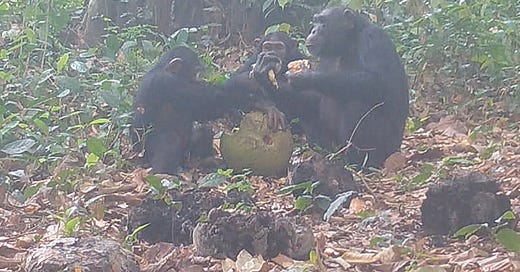


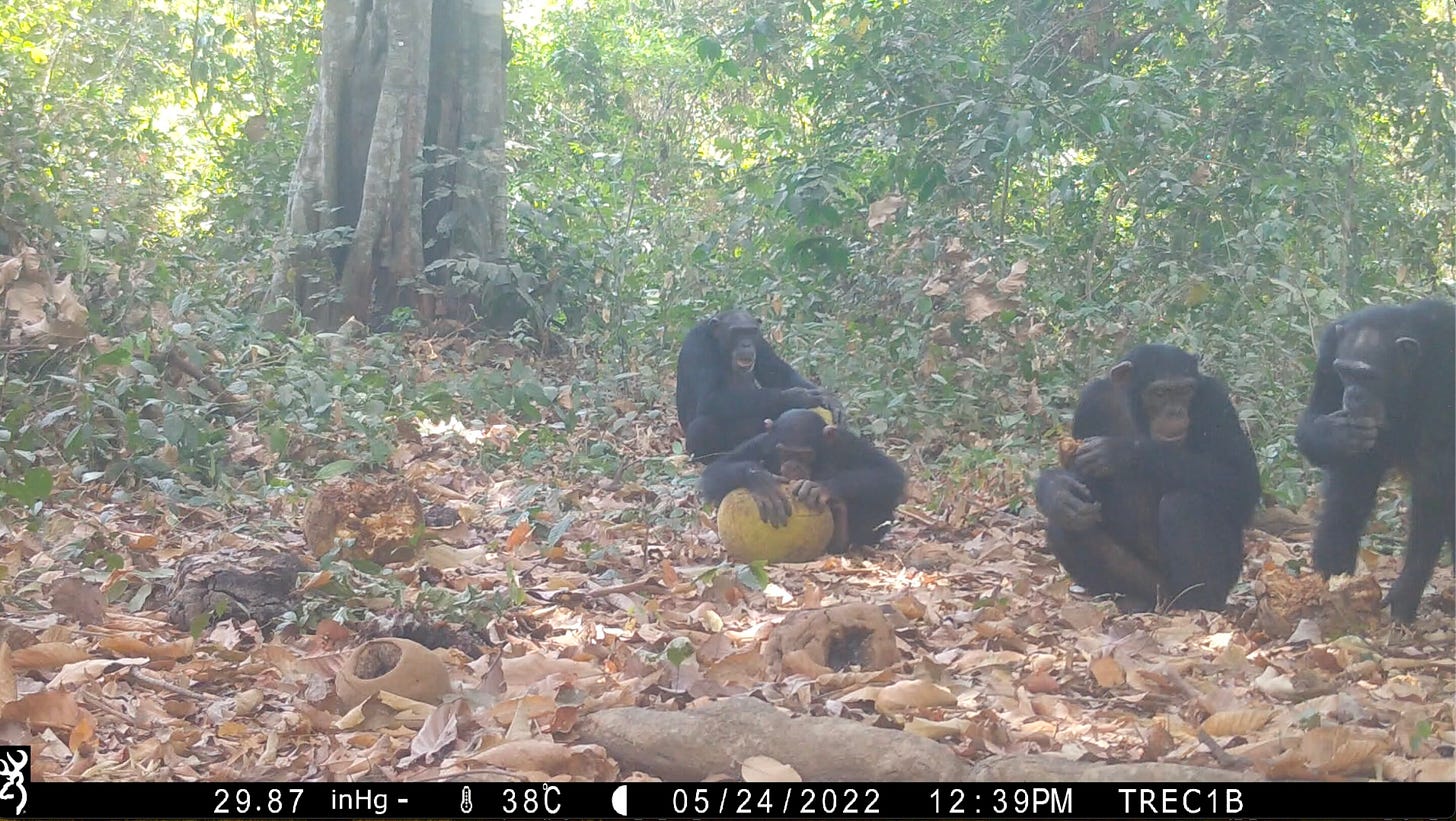
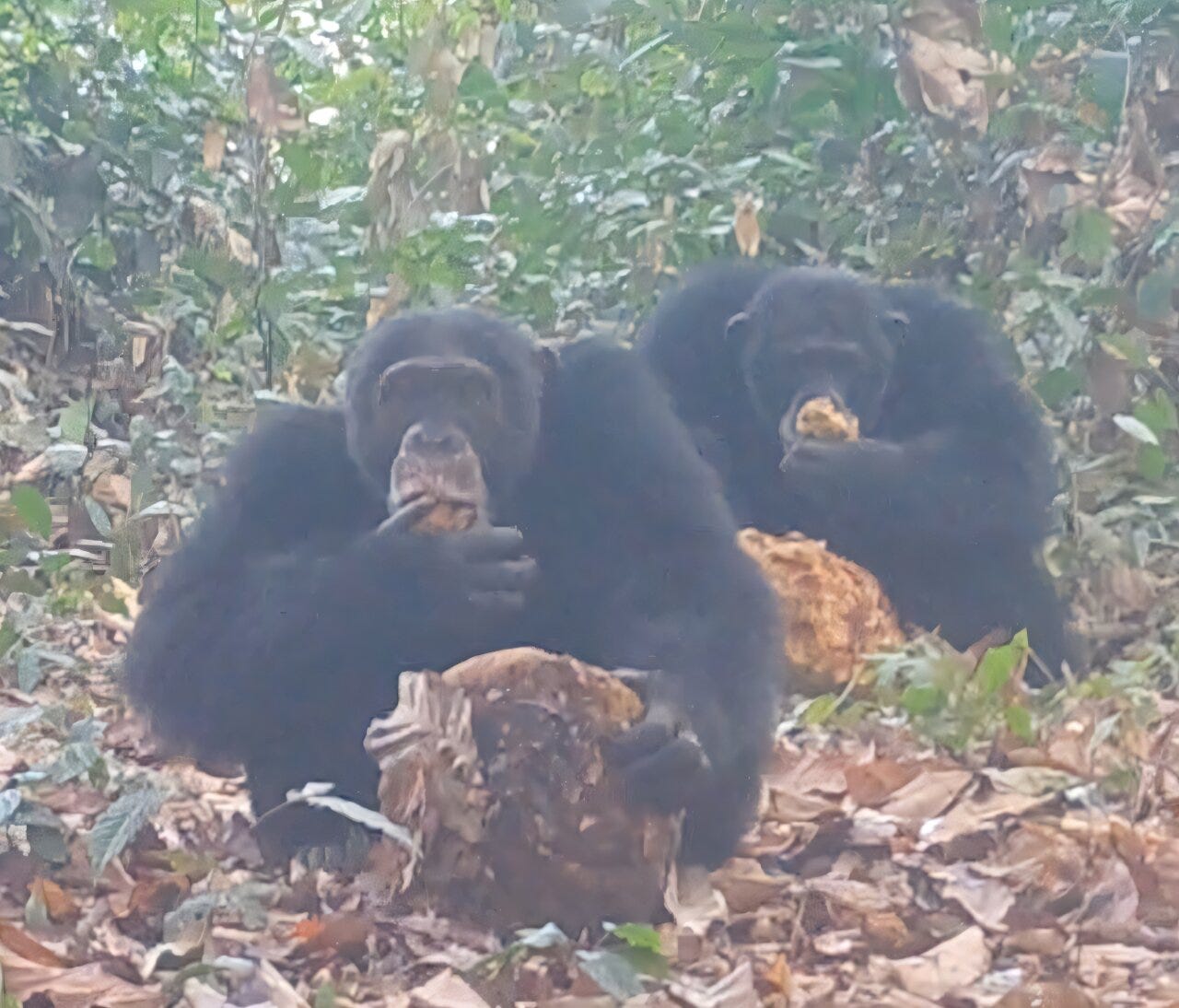
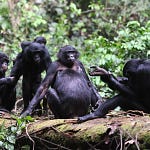





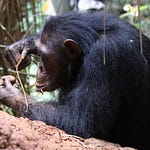
Share this post